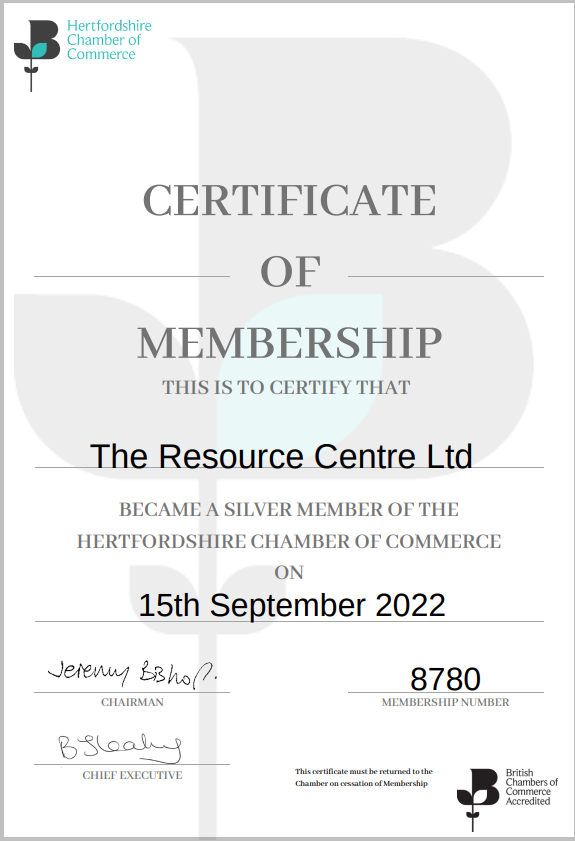
‘No’ is a complete sentence.

I’m sure at some point in all of our careers we have struggled to say ‘no’. No to taking on that extra shift, no to taking on a few extra responsibilities, no to a social engagement that might just stretch our already depleted energy levels.
Do you feel that you need a reason to say no? That you should craft an elaborate excuse as to why you can’t give up your free time to do something you probably don’t really want to do? In fact, you are saying no. You are saying no to yourself. No to spending an evening with friends or family, no to reading your book, finishing that show, or no to just doing whatever you want.
Assertiveness training gives you an opportunity to learn the skills to say no (or yes in the right situation) and enables you to be confident to practice saying no without the nagging feeling of guilt of letting down the team, your manager, or your colleagues.
But here’s the bit we don’t talk about. How do you respond to hearing the word ‘no’? Employers, line managers, where is your training? Do you have the skills to hear the word no and not react emotionally? It’s not all about getting the most hours/work out of your staff anymore, it’s about creating an environment of empowerment that allows your employees or line reports to be honest and set their boundaries and have them be respected. It’s not easy to hear no. But it’s harder to say it. Don’t always ask the person who says yes. The person who maybe doesn’t have children, just because they’re more likely to say yes. Don’t leave your request until the last minute, give people time to respond. And above all, be prepared to hear no. Please be kind and don’t ask why not.
‘No’ is a complete sentence.
Say ‘No’ to Summer stress

This is one ‘No’ that doesn’t need justifying!
Do you remember the days when you looked forward to summer? Six weeks holiday, beach breaks, lay-ins, BBQ’s and not to mention burning in the sun because ‘we just aren’t used to this kind of weather.’ Those childhood days may seem a million miles away from your office desk right now but here are ways to hike up your productivity and renew your love for summer again.
Plan your play!
You’ve heard the quote ‘work hard, play harder.’ It sounds desirable but with a busy schedule, it may seem impossible to have the time out that you need.
Arrange a date to ‘get away’ which doesn’t interfere with upcoming events. You don’t want to leave in the middle of a big project and then spend your hard-earned holiday stressing about it!
Get organised before you go!
Now, it’s a week before you’re due to finally get quality time out of the office. You know that but does your boss remember? Reminding your boss more than once about your holiday may feel like you’re a broken record, but bosses are busy and might need to be reminded in order to put things into place for the time that you are away.
You’re never really on holiday with a smartphone! Force of habit finds us checking our phones and let’s face it, it’s impossible to check just one email as before you know it, hours have passed!
Relax! Limit your contact and avoid spending your holiday working! Tell your colleagues when you’re going away so that they can deal with enquiries on your behalf.
Back to work
So, your holiday may be over but that doesn’t mean summer is over just yet. The office will be the same as when you left; hot!
Studies prove that movement reduces stress and increases concentration.
Be kind to yourself in the first week back. Make sure to take our lunch breaks, and if possible, take them outside. Remember to leave work at a reasonable time so you don’t lose the benefit of your holiday during your first week back!
Clearing your mind during work hours will keep you proactive. You don’t have to sit cross-legged on the office floor or listen to chants, just simply moving away from your computer screen will help you stay mentally fresh!
Prioritise and set goals. Decide on a few things you want to achieve before the week is out so you finish feeling positive and have a sense of achievement.
Is telemarketing dead?

Most B2B businesses have had it tough over the past two and a half years and some might say that it’s not going to get much easier due to the cost-of-living crisis, soaring energy prices, and living in a post-pandemic world.
So, today, every business needs as much help as it can get.
We will all have to manage costs carefully but, in order to grow and not just stand still, or, even worse, stagnate, marketing activities need to continue.
There are many benefits from telemarketing, especially if you outsource it.
Telemarketing specialists have a wealth of experience, motivation and persistence as they actually enjoy doing what they do – probably unlike you or I!
What are the benefits of outsourcing your telemarketing activities?
- Staff are experienced so minimal training is required
- You are not paying salaries, NI, pension, holidays or sickness
- You are not paying for equipment or any calls made
- You are not paying a manager to supervise, train or motivate telemarketers
In an automated world, telemarketing is an individual direct marketing approach that provides a human touch. Telemarketing offers prospects the opportunity to ask questions and the telemarketer to gain more information and data.
In today’s business world there is a place for all aspects of marketing and telemarketing complements social media and the internet.
Telemarketing creates a genuine sales pipeline built on conversations, forming professional relationships between your company, and the prospect.
Telemarketing can never die!
The Importance of First Impressions
Have you ever met someone for the first time and got strong feeling that this is someone you’re going to like and trust? Or, on the other hand, that there’s something about them that doesn’t feel quite right? Either way, it’s nothing you can put your finger on — just a feeling.
It would be strange if you haven’t, because this is exactly how humans are programmed to respond to anyone on an initial meeting — we form a first impression.
How We Form First Impressions
Forming a first impression may seem like ESP, but it isn’t really. All that’s happening is that your braining is very quickly noticing and processing various things about the person that you may not have picked up consciously. These may include their posture, the amount of space they’re giving you, their gestures, their expressions — perhaps even the slight, undetectable scent that comes from them.
All this is happening while you’re saying hello and how are you, and maybe introducing yourself. Your brain is comparing these observations with past experiences of how people who’ve shown those signs have turned out, and it will assume that this person will be similar. At the same time, of course, the other person is following the same process with you.
Generally speaking, we react to signals in much the same way, but there can be variations — for instance, different cultures will have different ideas of what’s a correct personal space. Nevertheless, if you want to give yourself the best chance of conveying the right impression, you’d do well to study what your body language usually conveys. Especially where your business is concerned.
First Impressions and Business
While making a good first impression may be important in many social settings, when you’re representing your business it can make the difference between securing a contract or not. Whether in a formally arranged meeting, a networking session or a chance encounter, the first impression you make is vital.
Estimates of how long you have to make that impression vary from three to twelve seconds, but everyone agrees that it’s very difficult to recover from a bad first impression. While not impossible, you have to recognise what’s happening and deliberately change the signals you’re giving out. That makes a full understanding of non-verbal communication essential.
First Impressions in Different Contexts
This is all very well at a face-to-face meeting, but what happens when you’re not in the same room as the other person? A video call is similar, although people are harder to read in a Zoom box, but both written form and phone calls have their own issues. In written form, for instance, exact phrasing will take the place of body language, but you won’t know how the other person is reacting — you just probably won’t hear from them if you’ve got it wrong.
In the case of a phone call, most of the impression you’re giving comes from your voice, rather than the words you use. This can still be extremely powerful, but it’s harder to read when you’re giving a bad impression.
Not impossible, but you need to be an expert at phoning to know how to react, which is why many business owners delegate their vital cold calling to specialists. Get in touch with the Resource Centre to find out whether we can help you assure that your business gives a great first impression over the phone.
How to Get Your Business Fighting Fit for the Post-Pandemic World
Is your business one of the many that went into hibernation during the pandemic? Perhaps you put yourself or your employees on furlough, or maybe you continued trading with a different offer.
Although the crisis is by no means over, the business world is opening up again now. But will you still fit into your familiar place, or will you need to reinvent yourself? If you’re going to thrive, there are a number of things you can do to make sure your business is fighting fit for the post-pandemic world. These are a few of them.
Plan Your Business Strategy
Having a well-planned business strategy is always vital to the health of your business, but isn’t it pointless to develop a strategy in such uncertain times as these? In fact, it’s even more important now than ever.
A strategy shouldn’t be set in stone. Instead, it’s a commitment to yourself and your partners of intent to aim for a particular goal. However, the route you use to reach this goal is likely to depend on what you encounter, while the goal itself may change if the circumstances demand it.
The best approach is to develop an ideal strategy, with clearly defined flexibility built in if events force you to diverge from your planned course. And remember that these events won’t necessarily be obstacles or drawbacks. Your strategy should be flexible enough to respond to any unexpected opportunity that may turn up.
Get Out and Network
Business networking is always important, especially if you’re a B-to-B company, but it’s doubly so now. If you haven’t ventured out much into the business landscape since the start of the lockdown, networking is the best way to tap into what’s going on now and how that might be different from what you’re used to
Fortunately, there’s more networking available than ever, and much of it is online, so you don’t even have to stir out of your office, saving both time and money. You have a full choice between loose meet-and-mingle groups, closed groups you join and commit to, and all shades between.
Build Your Customer Base
It’s important to remember, though, that business networking isn’t primarily about getting work right away from the people in the room, whether that room is physical or virtual. It’s about building relationships, which will hopefully bear fruit in the future. It’s an effective strategy, but a long-term one, so how do you build your customer base now?
The best way is to get on the phone and talk to your prospects, but there are two problems with that. You may well feel uncomfortable cold-calling, and in any case you don’t have time for that many calls. And that’s where the Resource Centre can help you. Give us a call to find out more.

